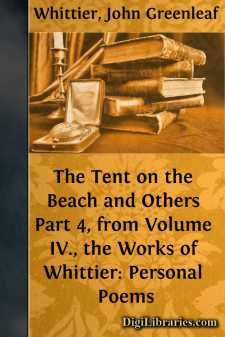Categories
- Antiques & Collectibles 13
- Architecture 36
- Art 48
- Bibles 22
- Biography & Autobiography 815
- Body, Mind & Spirit 144
- Business & Economics 28
- Children's Books 18
- Children's Fiction 14
- Computers 4
- Cooking 94
- Crafts & Hobbies 4
- Drama 346
- Education 58
- Family & Relationships 59
- Fiction 11835
- Games 19
- Gardening 17
- Health & Fitness 34
- History 1378
- House & Home 1
- Humor 147
- Juvenile Fiction 1873
- Juvenile Nonfiction 202
- Language Arts & Disciplines 89
- Law 16
- Literary Collections 686
- Literary Criticism 179
- Mathematics 13
- Medical 41
- Music 40
- Nature 180
- Non-Classifiable 1768
- Performing Arts 7
- Periodicals 1453
- Philosophy 65
- Photography 2
- Poetry 896
- Political Science 203
- Psychology 44
- Reference 154
- Religion 515
- Science 126
- Self-Help 85
- Social Science 83
- Sports & Recreation 34
- Study Aids 3
- Technology & Engineering 60
- Transportation 23
- Travel 463
- True Crime 29
Our website is made possible by displaying online advertisements to our visitors.
Please consider supporting us by disabling your ad blocker.
The Boy Captives
Description:
Excerpt
THE township of Haverhill, even as late as the close of the seventeenth century, was a frontier settlement, occupying an advanced position in the great wilderness, which, unbroken by the clearing of a white man, extended from the Merrimac River to the French villages on the St. Francois. A tract of twelve miles on the river and three or four northwardly was occupied by scattered settlers, while in the centre of the town a compact village had grown up. In the immediate vicinity there were but few Indians, and these generally peaceful and inoffensive. On the breaking out of the Narragansett War, the inhabitants had erected fortifications, and taken other measures for defence; but, with the possible exception of one man who was found slain in the woods in 1676, none of the inhabitants were molested; and it was not until about the year 1689 that the safety of the settlement was seriously threatened. Three persons were killed in that year. In 1690 six garrisons were established in different parts of the town, with a small company of soldiers attached to each. Two of these houses are still standing. They were built of brick, two stories high, with a single outside door, so small and narrow that but one person could enter at a time; the windows few, and only about two and a half feet long by eighteen inches wide, with thick diamond glass secured with lead, and crossed inside with bars of iron. The basement had but two rooms, and the chamber was entered by a ladder instead of stairs; so that the inmates, if driven thither, could cut off communication with the rooms below. Many private houses were strengthened and fortified. We remember one familiar to our boyhood,—a venerable old building of wood, with brick between the weather-boards and ceiling, with a massive balustrade over the door, constructed of oak timber and plank, with holes through the latter for firing upon assailants. The door opened upon a stone-paved hall, or entry, leading into the huge single room of the basement, which was lighted by two small windows, the ceiling black with the smoke of a century and a half; a huge fireplace, calculated for eight-feet wood, occupying one entire side; while, overhead, suspended from the timbers, or on shelves fastened to them, were household stores, farming utensils, fishing-rods, guns, bunches of herbs gathered perhaps a century ago, strings of dried apples and pumpkins, links of mottled sausages, spare-ribs, and flitches of bacon; the fire-light of an evening dimly revealing the checked woollen coverlet of the bed in one far-off corner, while in another—
"The pewter plates on the dresser
Caught and reflected the flame as shields of armies the
sunshine."
Tradition has preserved many incidents of life in the garrisons. In times of unusual peril the settlers generally resorted at night to the fortified houses, taking thither their flocks and herds and such household valuables as were most likely to strike the fancy or minister to the comfort or vanity of the heathen marauders. False alarms were frequent. The smoke of a distant fire, the bark of a dog in the deep woods, a stump or bush, taking in the uncertain light of stars and moon the appearance of a man, were sufficient to spread alarm through the entire settlement and to cause the armed men of the garrison to pass whole nights in sleepless watching. It is said that at Haselton's garrison-house the sentinel on duty saw, as he thought, an Indian inside of the paling which surrounded the building, and apparently seeking to gain an entrance. He promptly raised his musket and fired at the intruder, alarming thereby the entire garrison. The women and children left their beds, and the men seized their guns and commenced firing on the suspicious object; but it seemed to bear a charmed life, and remained unharmed. As the morning dawned, however, the mystery was solved by the discovery of a black quilted petticoat hanging on the clothes-line completely riddled with balls.
As a matter of course, under circumstances of perpetual alarm and frequent peril, the duty of cultivating their fields, and gathering their harvests, and working at their mechanical avocations, was dangerous and difficult to the settlers. One instance will serve as an illustration. At the garrison-house of Thomas Dustin, the husband of the far-famed Mary Dustin [who, while a captive of the Indians, and maddened by the murder of her infant child, killed and scalped, wit the assistance of a young boy, the entire band of her captors, ten in number], the business of brick-making was carried on. The pits where the clay was found were only a few rods from the house; yet no man ventured to bring the clay to the yard within the inclosure, without the attendance of a file of soldiers. An anecdote relating to this garrison has been handed down to the present time. Among its inmates were two young cousins, Joseph and Mary Whittaker; the latter a merry, handsome girl, relieving the tedium of garrison-duty with her light-hearted mirthfulness and—
"Making a sunshine in that shady place."
Joseph, in the intervals of his labors in the double capacity of brick-maker and man-at-arms, was assiduous in his attentions to his fair cousin, who was not inclined to encourage him. Growing desperate, he threatened one evening to throw himself into the garrison well. His threat only called forth the laughter of his mistress; and, bidding her farewell, he proceeded to put it in execution. On reaching the well he stumbled over a log; whereupon, animated by a happy idea, he dropped the wood into the water instead of himself, and, hiding behind the curb, awaited the result....












